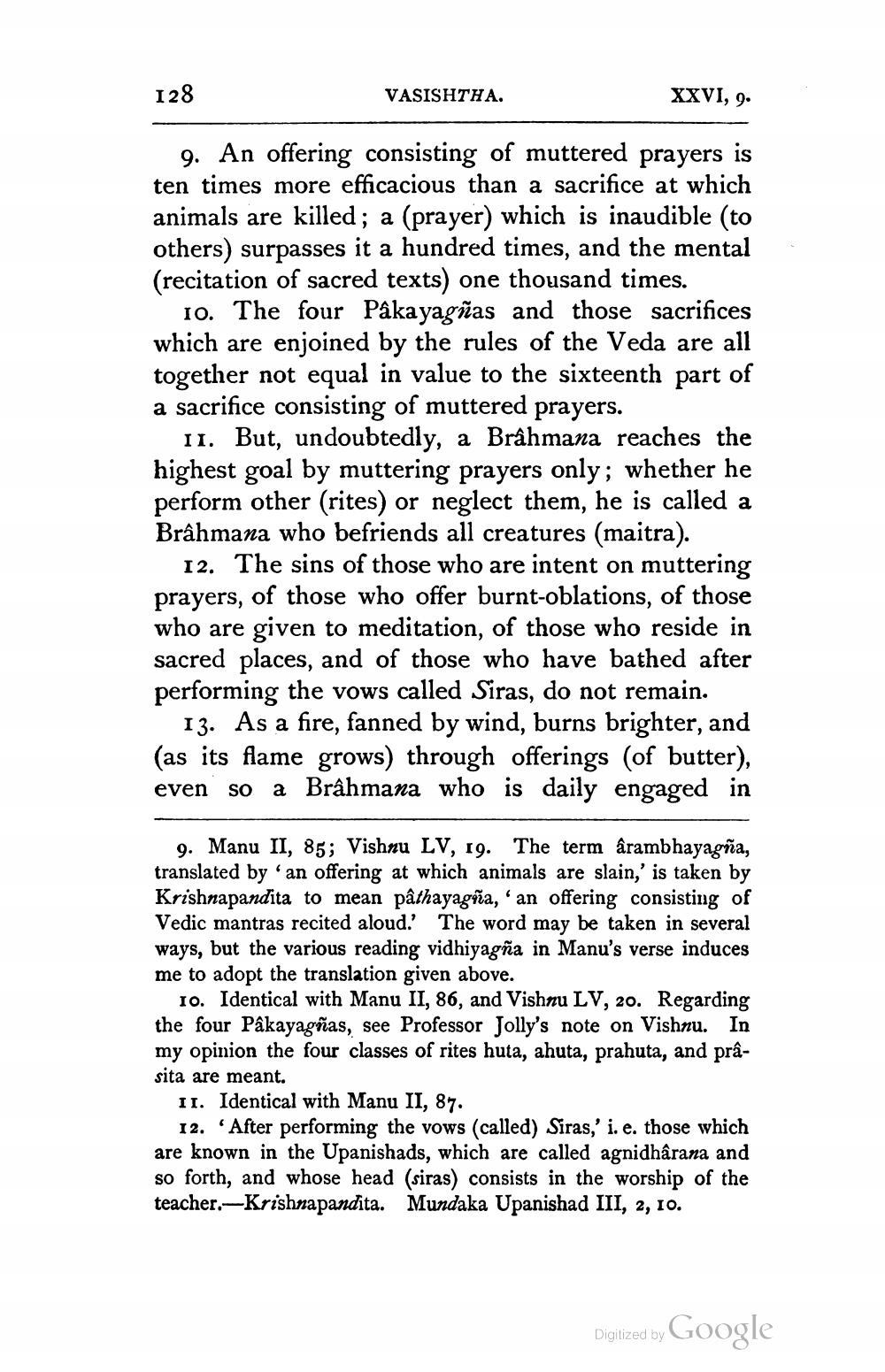________________
128
VASISHTHA.
XXVI, 9.
9. An offering consisting of muttered prayers is ten times more efficacious than a sacrifice at which animals are killed; a (prayer) which is inaudible (to others) surpasses it a hundred times, and the mental (recitation of sacred texts) one thousand times.
10. The four Pâkayagñas and those sacrifices which are enjoined by the rules of the Veda are all together not equal in value to the sixteenth part of a sacrifice consisting of muttered prayers.
11. But, undoubtedly, a Brâhmana reaches the highest goal by muttering prayers only; whether he perform other (rites) or neglect them, he is called a Brâhmana who befriends all creatures (maitra).
12. The sins of those who are intent on muttering prayers, of those who offer burnt-oblations, of those who are given to meditation, of those who reside in sacred places, and of those who have bathed after performing the vows called Siras, do not remain.
13. As a fire, fanned by wind, burns brighter, and (as its flame grows) through offerings (of butter), even so a Brâhmana who is daily engaged in
9. Manu II, 85; Vishnu LV, 19. The term árambhayagña, translated by an offering at which animals are slain,' is taken by Krishnapandita to mean pâthayagña,' an offering consisting of Vedic mantras recited aloud.' The word may be taken in several ways, but the various reading vidhiyagña in Manu's verse induces me to adopt the translation given above.
10. Identical with Manu II, 86, and Vishnu LV, 20. Regarding the four Pâkayagñas, see Professor Jolly's note on Vishnu. In my opinion the four classes of rites huta, ahuta, prahuta, and prasita are meant.
11. Identical with Manu II, 87.
12. After performing the vows (called) Siras,' i.e. those which are known in the Upanishads, which are called agnidharana and so forth, and whose head (siras) consists in the worship of the teacher.-Krishnapandita. Mundaka Upanishad III, 2, 10.
Digitized by Google




